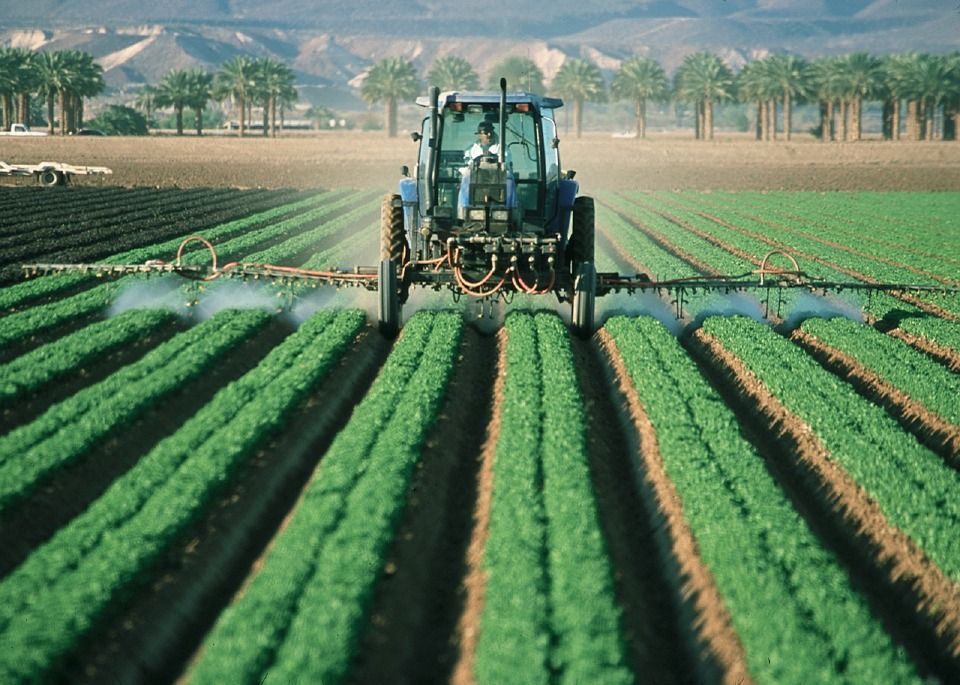Denmark has become the first country in the world to introduce a tax on agricultural emissions.
From 2035, Danish farmers will pay a levy of DKK 300 per tonne of CO2 they emit.
The agreement, negotiated over the past five months by a so-called Green Tripartite of figures from government, NGOs, nature and agriculture associations, was hailed as historic by several commentators.
Speaking at the press conference at which the agreement was presented last night, Foreign Minister Lars Løkke Rasmussen described it as the most far-sighted agreement he had ever contributed to.
“It is an extremely long-term project, where we create more nature, more biodiversity, but at the same time we also have in mind that we must have a strong and viable agriculture sector,” he said.
Economy Minister Stephanie Lose anticipated the agreement would see “a realignment of our agricultural and food industry”.
About the Green Tripartite
The tripartite was set up in December 2023 by the then-chairman of Venstre Jakob Ellemann-Jensen, after a heated internal party debate about an emissions levy on agriculture.
The tripartite was tasked with negotiating a tax to address the fact that Danish agriculture has not reduced its greenhouse gas emissions for more than ten years.
In addition, it was mandated to propose various measures to better manage the country’s land, nature and drinking water resources.
The Green Tripartite comprises the government, represented by several ministers, Agriculture & Food, the Danish Nature Conservation Association, the Danish Food Federation NNF, Dansk Metal, Danish Industry and the National Association of Municipalities.
It is chaired by the former Speaker of Parliament Henrik Dam Kristensen.
Source: Ministry of Economy and Commissorium for Green tripartite.
40 billion in new fund
Under the new tax framework, landowners will pay based on their emissions from livestock, fertiliser, forestry and the disturbance of carbon-rich agricultural soils – particularly on so-called ‘low-lying land’.
One of the main sources of CO2 emissions in the Danish agricultural sector is the drainage and cultivation of former wetlands such as bogs, lakes, river valleys and meadows. Rewilding these low-lying organic soils is therefore a major strategy for reducing the sector’s emissions.
The agreement earmarks DKK 40 billion for a new fund to provide subsidies for this type of rewilding. It also pledges to raise 250,000 hectares of new forest, 100,000 of which must be ‘untouched’, ie. with no forestry operations.
For comparison, the entire area of Fyn – one of Denmark’s three main land-masses – is around 310,000 hectares.
The new agreement at a glance
A CO2 tax on agricultural greenhouse gas emissions will be introduced from 2030 of DKK 120 per tonne of CO2.
It will rise to DKK 300 per tonne in 2035.
DKK 40 billion of state funding will be made available to support:
- Planting 250,000 hectares of forest on agricultural land until 2045.
- Removing 140,000 hectares of low-lying land by 2030.
- Buying up farmland with a view to reducing nitrogen emissions from fertiliser use
Broad satisfaction among negotiators
The President of Denmark’s Nature Conservation Association Maria Reumert Gjerding is pleased with the overall agreement, noting that “biodiversity is getting first priority”.
“With this agreement today, we are taking a huge step in the right direction,” she said.
On the opposite end of the negotiation spectrum, the landowners association Agriculture and Food is also satisfied – though chairman Søren Søndergaard reflects that they were “long and very difficult negotiations” in which the association made “major and difficult compromises”.
“But we have also gained real influence and left a significant mark that will be decisive for Denmark’s future food production and the coming generations of farmers,” he wrote in a press release.
“There have been a few crises along the way. That’s how it is. The only thing that looked even more difficult along the way were the consequences if we couldn’t agree. That’s why I’m happy that it could succeed.”
During the press conference, he spoke directly to the farmers who have been “worried for months, if not years” about how the CO2 tax would land.
“Now the waiting is over. The deal is here,” he said. “I am very proud of the significant impact that Agriculture and Food has made on the agreement.”
To ease the transition for landowners, there will be a five-year phase-in period from 2030 during which the tax will be DKK 120.












